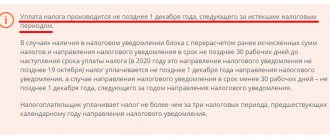Subject and science of criminal enforcement law
Criminal law
(UIP) is a system of norms established by the state in accordance with the requirements of penal policy, which regulates social relations in the process of executing criminal penalties, establishes the tasks, principles, general provisions, procedure and conditions for serving sentences, the application of basic correctional and educational means to convicts impact. Today, the prevailing idea is that criminal executive law is an independent branch, part of the legal system of the Russian Federation.
The science of criminal law
– this is the result of human activity to systematize and accumulate knowledge about penal law and its implementation (carrying out) in the law enforcement activities of public authorities executing punishment.
The main task of the science of penal law is to theoretically ensure the improvement of the execution of punishments.
Criminal-executive law is divided into General and Special parts.
a common part
determines the goals, objectives, principles, system and structure of penal legislation, the legal status of convicts, the system of penal bodies and control over their activities.
Special part
determines the procedure and conditions for the execution and serving of specific types of sentences, as well as the grounds and procedure for release from punishment and control over those released and conditionally convicted.
The subject of criminal executive law
are social relations that develop in the process of execution and serving criminal sentences.
The subject of the UIP
includes state policy in the field of execution of criminal punishment; the structure of the norms of the branch of law under consideration; the legislative system and its sources; criminal law of foreign countries, international legal standards for the treatment of convicted persons and crime prevention; practice of execution of punishment and correction of convicts, etc.
Institutions and bodies executing criminal penalties
Execution of punishment in the form of a fine
according to Part 1 of Art.
16 of the Penal Code of the Russian Federation and Art. 103 of the Federal Law of October 2, 2007 No. 229-FZ “On Enforcement Proceedings” is assigned to bailiffs of the Federal Bailiff Service. The courts that passed the sentence are entrusted with the execution of criminal punishment in the form of deprivation of a special, military or honorary title, class rank and state awards.
Currently, most criminal penalties are carried out by institutions of the penal system, which since September 1, 1998 has been functioning as part of the Ministry of Justice of Russia. It includes: penal inspections, executing such types of punishment as correctional
and
compulsory work, deprivation of the right to hold certain positions or engage in certain activities,
as well as
monitoring those on probation; correctional centers implement restrictions of freedom; houses of arrest carry out punishment in the form of arrest; correctional institutions carry out criminal penalties in the form of imprisonment for a certain period
and
life imprisonment.
Imprisonment for a specified period
carry out settlement colonies, correctional colonies of general, strict, special regime, educational colonies, prisons, medical correctional institutions, medical and preventive institutions, special correctional institutions for the detention of former employees of courts and other law enforcement agencies, pre-trial detention centers for convicts left for execution work on the economic maintenance of these institutions, and those sentenced to a term of not more than 6 months, left in pre-trial detention centers with their consent.
Special regime correctional colonies for convicts serving life imprisonment carry out life imprisonment.
Death penalty
executed by penal institutions. Before the introduction of a moratorium on the death penalty, this type of punishment was carried out in strictly designated pre-trial detention centers and prisons.
In addition to the listed types of criminal penalties, correctional institutions, correctional centers and arrest houses apply compulsory medical measures to certain categories of convicts specified by law.
Institutions and bodies executing criminal penalties against military personnel,
are:
disciplinary military units (maintenance in a disciplinary military unit); guardhouses for convicted military personnel or corresponding sections of garrison guardhouses (arrest); command of military units (restriction on military service).
The listed institutions are, as a rule, special government structures for which the execution of criminal penalties is the main function. Criminal executive legislation clearly regulates their activities and powers in the execution of certain types of criminal penalties. In addition, parts 2 and 3 of Art. 16 of the Penal Code of the Russian Federation provide for the existence of other institutions and bodies that directly implement the requirements of a sentence on deprivation of the right to hold certain positions or engage in certain activities, as well as on deprivation of a special, military or honorary title, class rank and state awards. These include the administrations of organizations in which convicts work, and bodies authorized in accordance with the law to cancel permission to engage in relevant types of activities (Part 2), as well as officials who previously awarded convicts a title, class rank or awarded a state award, or relevant authorities of the Russian Federation.
Today there are three types of criminal penalties (restriction of freedom, arrest, death penalty)
are not fulfilled.
In accordance with Art. 5 of the Federal Law of January 8, 1997 No. 2-FZ “On the entry into force of the Criminal Executive Code of the Russian Federation”, the provisions of the Penal Code of the Russian Federation on punishments in the form of restriction of freedom and arrest are put into effect by federal law or federal laws as the necessary conditions for execution of these types of punishments, but at the same time about punishment in the form of restriction of freedom -
no later than 2005, about punishment in the form of
arrest -
no later than 2006. However, the socio-economic situation in the country did not allow the introduction of these criminal penalties within the specified time frame. Currently, bills have been submitted to the State Duma to exclude from the current legislation provisions on arrest as a form of criminal punishment, as well as to change the content and procedure for executing restrictions on freedom.
In the Resolution of the Constitutional Court of the Russian Federation of February 2, 1999 No. 3-P “In the case of verifying the constitutionality of the provisions of Article 41 and part three of Article 42 of the Code of Criminal Procedure of the RSFSR, paragraphs 1 and 2 of the resolution of the Supreme Council of the Russian Federation of July 16, 1993 “On the procedure for introducing the Law of the Russian Federation “On Amendments and Additions to the Law of the RSFSR “On the Judicial System of the RSFSR”, the Criminal Procedure Code of the RSFSR, the Criminal Code of the RSFSR and the Code of the RSFSR on Administrative Offenses” “in connection with the request of the Moscow City Court and complaints from a number of citizens” is established, that until the establishment of jury trials in all regions of Russia the death penalty
cannot not only be executed, but also appointed by the courts. According to Art. 8 of the Federal Law of December 18, 2001 No. 177-FZ (as amended on December 27, 2006) “On the implementation of the Criminal Procedure Code of the Russian Federation”, jury courts have been functioning since January 1, 2004 in all subjects of Russia, with the exception of Chechen Republic, where they are introduced on January 1, 2010.
Activities of criminal-executive law
Criminal law
- an independent branch of Russian law falling under the jurisdiction of the Federation, which is characterized by its own subject, method, as well as a separate system of norms that establish the goals, principles, directions, main forms and means of implementing state policy in the field of execution of criminal penalties.
Criminal enforcement activities
This is the final stage of law enforcement. The effectiveness of many government bodies depends on its effectiveness: legislative, executive, judicial. The penal system is designed to perform many social tasks. Criminal-executive legislation and the practice of its application are one of the generally recognized and actually effective means of influencing crime and controlling its condition in modern conditions.
In modern conditions of operation of the Criminal Code of the Russian Federation and the corresponding Penal Code of the Russian Federation, there has been an expansion of the subject of criminal executive law. In accordance with Art. 2 of the Penal Code of the Russian Federation, the expansion of the subject of criminal executive law is associated with the following forms of regulation of social relations:
a) with the execution of all types of punishments and other measures of criminal law provided for by the Criminal Code of the Russian Federation (compulsory measures of a medical and educational nature), on the basis of the principles, rules and procedures established by law;
b) with the application of the prescribed means of correction to convicted persons;
c) with regulation of the activities of institutions and bodies executing punishments;
d) with the procedure for the participation of state authorities and local governments, other organizations, public associations;
e) with the procedure for release from punishment and assistance to released persons.
The independence of any branch of law is characterized by the presence of its own method of legal regulation of relations. In Criminal Executive Law, the main method is the imperative method, which presupposes inequality of subjects of legal relations.
Digital library
Humanities / Criminal law / 2.1.3 Bodies executing criminal punishments
The bodies executing criminal penalties in the penitentiary system include:
1) Federal Penitentiary Service of the Russian Federation and its territorial bodies;
2) Federal Bailiff Service of the Russian Federation;
3) courts;
4) the administration of the organization in which the convicted person works;
5) command of military units and institutions;
6) the body authorized in accordance with the law to cancel the permit to engage in the relevant activity;
7) the official who conferred the title, class rank or awarded the state award, or the relevant body.
Federal Penitentiary Service of the Russian Federation
(FSIN of Russia) was created on the basis of decrees of the President of the Russian Federation:
· dated March 9, 2004 No. 314 “On the system and structure of federal executive bodies”;
· dated October 13, 2004 No. 1314 “Issues of the Federal Penitentiary Service.”
Main tasks
The FSIN of Russia are:
1) execution in accordance with the legislation of the Russian Federation of criminal penalties, detention of persons suspected or accused of committing crimes, and defendants (hereinafter referred to as persons in custody);
2) control over the behavior of probationers and convicts who have been granted a deferment of serving their sentence by the court;
3) ensuring the protection of the rights, freedoms and legitimate interests of convicted persons and persons in custody;
4) ensuring law and order and legality in institutions executing criminal penalties in the form of imprisonment (hereinafter referred to as institutions executing punishments) and in pre-trial detention centers, ensuring the safety of convicts held there, persons in custody, as well as employees of the penal system , officials and citizens located in the territories of these institutions and pre-trial detention centers;
5) protection and escort of convicted persons and persons in custody along established escort routes, escort of citizens of the Russian Federation and stateless persons to the territory of the Russian Federation, as well as foreign citizens and stateless persons in the event of their extradition;
6) creation of conditions of detention for convicts and persons in custody that comply with the norms of international law, the provisions of international treaties of the Russian Federation and federal laws;
7) organization of activities to provide assistance to convicts in social adaptation;
 management of territorial bodies of the Federal Penitentiary Service of Russia and directly subordinate institutions.
management of territorial bodies of the Federal Penitentiary Service of Russia and directly subordinate institutions.
The Federal Penitentiary Service of the Russian Federation exercises the following powers
:
1) provides
in accordance with the legislation of the Russian Federation:
- law and order and legality in institutions executing punishments and pre-trial detention centers, as well as the safety of persons located on their territories;
— security of facilities of the penal system, as well as bodies of the Ministry of Justice of Russia in the manner established by the Minister of Justice of the Russian Federation;
— accurate and unconditional execution of sentences, decisions and rulings of courts in relation to convicted persons and persons in custody;
- the established procedure for the execution of punishments and detention, the implementation of regime requirements in institutions executing punishments and pre-trial detention centers, supervision of convicted persons and persons in custody;
— fulfillment of the international legal obligations of the Russian Federation regarding the transfer of convicted persons to the states of their citizenship and extradition;
— legal, social protection and personal safety of employees of the penitentiary system and members of their families;
— protection of information constituting state and other secrets protected by law in the penal system;
— conditions of detention of convicted persons and persons in custody in institutions executing punishments and pre-trial detention centers;
preparation of the penal system for actions in emergency circumstances, elimination of their consequences within the jurisdiction
— at various facilities using the forces and means of the penal system, as well as interaction with federal executive authorities;
— operation and development of an open and encrypted communication network, provision of telecommunications services to convicts and persons in custody;
— attracting convicts to work and creating conditions for their moral and material interest in the results of labor;
2) carries out
:
- sending convicts to the place of serving their sentences, their placement, as well as the transfer of convicts and persons in custody from one institution executing punishments and pre-trial detention centers to others in the manner established by the legislation of the Russian Federation;
— measures to provide employees of the penal system with weapons and special means, to comply with the rules for the circulation of weapons in the penal system in the manner established by the Government of the Russian Federation;
— medical and sanitary provision for convicts and persons in custody, supervision over the implementation of sanitary legislation of the Russian Federation, as well as the application of compulsory medical measures and compulsory treatment to convicts;
— preparation of materials on the undesirability of foreign citizens and stateless persons released from prison to stay (reside) in the Russian Federation for submission to the Russian Ministry of Justice;
— permitting, control and supervisory functions in the field of industrial safety at production facilities of the penal system;
— functions of the state customer, including in the field of state defense procurement, in the manner established by the legislation of the Russian Federation;
— pension provision for persons dismissed from service in the penitentiary system, as well as members of their families;
— material and technical support for the activities of institutions and bodies of the penal system, enterprises of institutions executing sentences, as well as other enterprises and institutions specially created to support the activities of the penal system;
— departmental examination of the justification of investments in construction, design documentation for the reconstruction and construction of facilities of the penal system, as well as for major repairs of buildings and structures;
— the powers of the owner in relation to federal property transferred to institutions and bodies of the penal system, enterprises of institutions executing punishment, as well as other enterprises and institutions specially created to ensure the activities of the penal system, in accordance with the legislation of the Russian Federation;
— control over the activities of institutions and bodies of the penal system, as well as control over compliance with the rule of law and ensuring the rights of convicted persons and persons in custody;
— protection of institutions and bodies of the penal system, convicts and persons in custody;
— organization, within its competence, of special transportation of convicts and persons in custody, their escort and protection for the period of escort;
— development and implementation of measures to ensure fire safety, prevention and extinguishing of fires at the facilities of institutions and bodies of the penal system;
— measures to ensure mobilization preparation and mobilization, as well as to carry out civil defense measures, increase the sustainability of the work of the Federal Penitentiary Service of Russia, its territorial bodies, institutions executing punishments, and pre-trial detention centers in wartime conditions and in the event of emergency situations in peacetime;
— reference and information support for institutions and bodies of the penal system and maintenance of a unified data bank on issues related to the activities of the penal system;
— coordination of the activities of educational and research institutions subordinate to the Federal Penitentiary Service of Russia, in accordance with the legislation of the Russian Federation;
— operation, maintenance and protection of the property of the penal system, as well as the necessary measures for its preservation and rational use;
— measures to organize the consideration of proposals, applications and complaints of convicted persons and persons in custody;
— organization of accounting and statistical records in the penitentiary system, control over the expediency of ongoing financial and business operations and their compliance with the legislation of the Russian Federation, organization of economical and efficient spending of budget funds;
— contractual and claims work;
3) takes part
:
— in the preparation of materials necessary for consideration of the petitions of convicted persons for pardon;
— in the development and conduct of legal examination of draft legislative and other regulatory legal acts relating to the activities of the penal system, on behalf of the Ministry of Justice of Russia;
— in the development of federal programs for the development and strengthening of the penal system;
- in the manner established by the legislation of the Russian Federation, in the development of special equipment, special means used in the penal system, and also carries out their purchase, storage, repair and write-off;
4) organizes
:
— general and primary vocational education and vocational training, as well as correspondence and distance learning for convicts in educational institutions of secondary and higher vocational education;
— fulfillment of orders for the supply of products and goods for state needs placed at enterprises and in-house production institutions executing punishments;
— interaction of territorial bodies of the Federal Penitentiary Service of Russia with territorial bodies of other federal executive bodies, government bodies of the constituent entities of the Russian Federation, local government bodies, law enforcement agencies, as well as with public and religious associations;
— operational investigative activities carried out by institutions of the penal system in accordance with the legislation of the Russian Federation;
— carrying out educational work with convicted persons and persons in custody aimed at their correction;
— interaction with the media and editorial and publishing activities in order to fulfill the tasks assigned to the penal system;
— staffing of the central apparatus of the Federal Penitentiary Service of Russia, its territorial bodies, institutions executing punishments, and pre-trial detention centers, professional training, retraining, advanced training and internship of personnel;
— work on the acquisition, storage, accounting and use of archival documents related to the activities of the Federal Penitentiary Service of Russia, as well as office work in accordance with the legislation of the Russian Federation;
— preparation of materials for reports of the Minister of Justice of the Russian Federation to the President of the Russian Federation and the Government of the Russian Federation on the state of work on the execution of criminal penalties, ensuring the conditions of detention of convicted persons and persons in custody, as well as on the observance of the rule of law and human rights in institutions executing punishments, and pre-trial detention centers;
— execution of acts of amnesty and pardon;
5) creates
, reorganizes and liquidates enterprises of institutions executing punishments in accordance with the legislation of the Russian Federation;
6) carries out
functions of the main manager of federal budget funds allocated for the maintenance of the penal system and the implementation of the functions assigned to it;
7) carries out
functions of the state customer for capital construction, reconstruction and major repairs of facilities of the penal system, as well as for housing construction;
 requests
requests
and receives, in the prescribed manner, the information necessary to make decisions on issues related to the established scope of activity;
9) organizes
reception of citizens, ensures timely and full consideration of their oral and written requests on issues related to the activities of the penal system, adoption of appropriate decisions on them and sending responses within the period established by the legislation of the Russian Federation;
10) carries out
other functions in the established field of activity, if such functions are provided for by federal constitutional laws, federal laws, acts of the President of the Russian Federation and the Government of the Russian Federation.
Bailiffs enforce punishment in the form of a fine[1].
The main function of the court
is the administration of justice in criminal and civil cases, which creates the legal basis for the execution of criminal punishment.
Therefore, the tasks of justice and criminal enforcement activities largely coincide. The court hearing the criminal case in the first instance, in accordance with Art. 393 of the Code of Criminal Procedure of the Russian Federation converts the sentence to execution, i.e. after the conviction has entered into legal force, sends a copy of it to the institution or body entrusted with the execution of the punishment. The court that considered the case in the first instance is obliged to ensure that its verdict, ruling and decision are carried out. This applies to all types of punishment without exception.
At the same time, Art. 16 of the Penal Code of the Russian Federation imposes on the court that passed the sentence the execution of punishment in the form of deprivation of a special, military or honorary title, class rank and state awards.
Administration of the organization at the place of work of the person sentenced to punishment
, whose service is associated with labor activity in this organization, carries out, together with the criminal-executive inspection, the execution of punishment in the form of: compulsory labor, correctional labor, deprivation of the right to occupy certain positions and engage in certain activities.
For example, the administration of the organization in which a person sentenced to correctional labor works is obliged to:
1) carry out the orders of the court verdict regarding the deduction from the wages of the convicted person and the transfer of the withheld amounts in the prescribed manner to the appropriate budget;
2) control the behavior of the convicted person at work and assist the penitentiary inspection in carrying out educational work with him;
3) comply with the conditions for serving the sentence provided for by the Penal Code of the Russian Federation (Article 43 of the Penal Code of the Russian Federation).
Restrictions on military service are enforced by the command of military units
, in which military personnel sentenced to this punishment serve. In addition, the command of military units executes court sentences in relation to military personnel sentenced to deprivation of the right to hold certain positions or engage in certain activities, and also exercises control over suspended sentenced military personnel.
The command of the military unit is obliged to inform the criminal-executive inspection at the location of the military unit within 10 days that the named convicts, the sentence in respect of which has entered into legal force, have been registered and the instructions of the sentence in respect of them are being carried out.
At the end of military service, if by this time the probationary period or the ban on holding a certain position or engaging in certain activities has not expired, the command of the military unit sends a copy of the court verdict to the penal inspection at the place of the convicted person’s chosen residence to continue the execution of the punishment specified in the court verdict . The command of the unit notifies the criminal-executive inspection at the place of deployment of the unit and the court that passed the sentence about the fulfillment of this obligation.
A conditionally convicted person is obliged to report to the command about his behavior and the performance of the duties assigned to him by the court (Article 188 of the Penal Code of the Russian Federation).
[1] About bailiffs: federal. Law of July 21, 1997 No. 118-FZ (as amended on November 7, 2000) // SZ RF. – 1997. – No. 30. – Art. 3591; 2000. – No. 46. – Art. 4537.
Authority competent
in accordance with the law,
to cancel the permit to engage in the relevant activity
, fulfills the order of the court verdict on the deprivation of the right to engage in activities specifically defined in the court verdict. We are talking about the execution of a sentence both in relation to persons who are engaged in certain individual labor or other activities, and in relation to persons who are not officials who, after conviction, are prohibited from engaging in certain activities (for example, financially responsible) in enterprises and institutions, regardless of the form property. What type of activity a convicted person is prohibited from engaging in is clearly determined by a court verdict (for example, driving a car, hunting, raising children, etc.).
An official who conferred a title, class rank or awarded a state award
,
or the relevant body
fulfills the requirements of the court verdict on deprivation of a special, military or honorary title, class rank and state awards (Part 3 of Article 16 of the Penal Code of the Russian Federation).
Penal policy
State policy significantly influences the formation and development of the legal system, various branches of legislation, and legal forms. It forms the basic principles, strategy, directions and forms of achieving social goals.
The fight against crime occupies an important place in the state policy of the Russian Federation. There are criminal and penal policy
and
crime prevention policies
. This division is conditional, since individual policy areas can either be combined with each other or separated. Penal policy is closely related to criminal policy.
Penal policy
determines the goals and objectives, principles and main directions, forms and methods of state activity to ensure the execution of punishment, correct the convicted and prevent them from committing new crimes. It is based on provisions developed by the international community on the treatment of convicted persons.
Penal strategy
policy is to democratize the activities of correctional institutions, to define new types of criminal penalties alternative to imprisonment, and to involve society in the correction of convicts.
Subjects of policy formation in the field of execution of punishments
are the President and the Federal Assembly of the Russian Federation. So, according to Part 3 of Art. 80 of the Constitution of the Russian Federation, the President determines the main directions of the internal policy of the state. Policy in the field of combating crime (part of which is policy in the field of execution of punishment) is an integral part of the internal policy of the state.
Penal policy is implemented in the activities of the relevant state bodies of the penal system (Ministry of Justice of the Russian Federation, Department of Bailiffs, institutions and bodies entrusted by law with the execution of criminal punishment, etc.). The implementation of policies in this social sphere is also entrusted to other state bodies.
Factors influencing the formation of penal policy
The formation of penal policy is influenced by the following factors: the socio-political and economic state of society; state of morality, presence of ideology; level of legal consciousness; state of crime; recognition of international instruments on human rights and treatment of prisoners; activities of international organizations; the state of civil society; science achievements.
First of all, penal policy largely depends on the moral state of society
, on the level of his legal consciousness. If social relations worsen and the moral foundations of society weaken, then this leads to an exacerbation of contradictions between people, forms negative views of convicts, which inevitably negatively affects the formation of penal policy. It becomes more rigid, and its goals and principles are practically not realized.
The economic state of society has the most direct impact on penal policy.
.
In an economically strong state, higher goals are set, the strategy becomes fundamental, and the main forms and methods of its implementation do not depend on political factors and the situation.
Another factor influencing the formation and development of penal policy is the state of crime
. A stable crime rate or its decline makes policy in this area, as a rule, more humane. The growth of serious and, above all, violent crimes negatively affects moral and legal ideas in society and stimulates tougher political and legal decisions.
Penal policy is enshrined in various forms, and above all, in penal legislation. Currently, it is enshrined in the Criminal Executive Code (EC), as well as in other federal laws and regulations - decrees of the Government of the Russian Federation on issues related to the execution of punishment (food for convicts, medical and household support).
Principles of penal law
There are three groups of principles of criminal-executive law: general legal; intersectoral; industry.
I. General legal principles:
democracy, legality, humanism.
1. Under the principle of democracy
management of correctional institutions is built on the basis of democratic centralism.
2. Principle of legality
is expressed in the strict observance and exact execution of laws and regulations by all bodies, institutions and officials executing punishment.
3. The principle of humanism
is expressed in the establishment of humane conditions for serving a sentence and is manifested in a fair attitude towards convicts, respect for their honor and dignity.
II. Cross-sectoral principles:
equality of convicted persons before the law; differentiation and individualization of execution of punishments.
1. The principle of equality of convicted persons before the law
lies in the uniform legal status of persons serving a specific type of punishment or who are under the same conditions for serving a sentence.
2. Principle of differentiation
reflects the need to distribute the entire mass of convicts into homogeneous categories by type of correctional institution: citizenship; semi; age; the gravity of the crime committed; criminal record.
3. Principle of individualization
is expressed in the requirement of a strict individual approach to each convicted person, that is, the choice of measures of influence necessary for this particular convicted person.
III. Industry principles:
rational use of coercive measures, means of correction of convicts; encouraging law-abiding behavior; combining punishment with corrective action.
1. The principle of rational use of coercive measures and means of correction of convicts
consists, on the one hand, in the minimality and gentleness of repression, on the other hand, in its sufficiency and proportionality.
2. With the principle of stimulating law-abiding behavior
incentive norms are applied to improve the legal status of convicts.
3. The principle of combining punishment with corrective action
represents a wide range of educational activities: educational work, labor, general education and vocational training.
Criminal executive law: Lecture notes
Principles of penal law
There are three groups of principles of penal law: general law; intersectoral; industry.
I. General legal principles:
democracy, legality, humanism.
1. Under the principle of democracy
management of correctional institutions is built on the basis of democratic centralism.
2. Principle of legality
is expressed in the strict observance and exact execution of laws and regulations by all bodies, institutions and officials executing punishment.
3. The principle of humanism
is expressed in the establishment of humane conditions for serving a sentence and is manifested in a fair attitude towards convicts, respect for their honor and dignity.
II. Cross-sectoral principles:
equality of convicted persons before the law; differentiation and individualization of execution of punishments.
1. The principle of equality of convicted persons before the law
lies in the uniform legal status of persons serving a specific type of punishment or who are under the same conditions for serving a sentence.
2. Principle of differentiation
reflects the need to distribute the entire mass of convicts into homogeneous categories by type of correctional institution: citizenship; semi; age; the gravity of the crime committed; criminal record.
3. Principle of individualization
is expressed in the requirement of a strict individual approach to each convicted person, that is, the choice of measures of influence necessary for this particular convicted person.
III. Industry principles:
rational use of coercive measures, means of correction of convicts; encouraging law-abiding behavior; combining punishment with corrective action.
1. The principle of rational use of coercive measures and means of correction of convicts
consists, on the one hand, in the minimality and gentleness of repression, on the other hand, in its sufficiency and proportionality.
2. With the principle of stimulating law-abiding behavior
incentive norms are applied to improve the legal status of convicts.
3. The principle of combining punishment with corrective action
represents a wide range of educational activities: educational work, labor, general education and vocational training.
4. Principles of legality and humanism.
In the general theory of law, principles are defined as the basic ideas of law, the guiding provisions of the legal system. In Art. 8 of the Penal Code of the Russian Federation lists the principles on which the penal legislation of the Russian Federation is based.
Principle of legality
- constitutional.
It is enshrined in a number of articles of the Constitution of the Russian Federation (Articles 4, 13,15,17–19, etc.) and international documents. In criminal executive law, the principle of legality is expressed in the supremacy of the law governing the execution of punishment, and its priority
over other normative legal acts regulating public relations in this area. The principle of legality is reflected in Chap. 2 tbsp. 10–15 of the Penal Code of the Russian Federation, which determine the legal status of convicted persons, in Ch. 3 tbsp. 19–23 of the Penal Code of the Russian Federation, establishing a system and forms of control over the activities of institutions and bodies executing punishment.
The principle of humanism
enshrined in many institutions and norms of the Penal Code of the Russian Federation, international acts on human rights and on the treatment of convicted persons. For example, in Art. 10 of the International Covenant on Civil and Political Rights it is formulated as follows: “All persons deprived of their liberty have the right to be treated with humanity and respect for the inherent dignity of the human person.” In ch. 2, Article 12 of the Penal Code of the Russian Federation states that convicts “should not be subjected to cruel or degrading treatment. Coercive measures against convicted persons can only be applied on the basis of the law.”
The principle of humanism is also expressed in the goals set by the state when executing punishment: correction of convicts, return to society as full members.
It is implemented through means
of correctional influence:
socially useful work, intensive psychological and pedagogical influence, vocational training and general education.
The goals of humane treatment of convicts are reflected in such institutions of this branch of law as travel of convicts outside places of deprivation of liberty (Article 87 of the Penal Code of the Russian Federation), visits (Article 91 of the Penal Code of the Russian Federation), telephone conversations (Article 92 of the Penal Code of the Russian Federation), etc.
The principle of democracy
is implemented by recognizing the convicted person as a subject of penal law. The International Covenant on Civil and Political Rights (Article 16) states that “every person, wherever he may be, has the right to recognition of his personality before the law.” This provision guarantees a convicted person with significantly limited rights appropriate social security.
The principle of democracy is enshrined in Part 2 of Art. 9 of the Penal Code of the Russian Federation, which lists social influence on them
.
In Art. 23 of the Penal Code of the Russian Federation enshrines the assistance of public associations
to the work of institutions and bodies executing punishment, participation in the correction of convicts, as well as the right to exercise control over the activities of these institutions and bodies.
The principle of democracy is expressed in involving the public in educational work with convicts, as well as openness in the activities of institutions and bodies executing punishment, and in exercising public control over their activities.
The principle of equality of convicted persons before the law
is a constitutional and international legal principle.
In the Criminal Executive Code of the Russian Federation (Article 6), this principle is formulated as a prohibition of establishing any advantages for convicts depending
on “race, skin color, gender, language, religious, political and other beliefs, national or social origin, property status, family origin or social status."
But equality of convicts before the law does not mean equality of conditions for serving their sentences.
They are adjusted depending on age, health status, and gender. Thus, in accordance with international regulations, more preferential conditions of detention are established for minors. There are certain benefits for disabled people of groups I and II, elderly convicts, and women. Also, the conditions for serving a sentence are differentiated depending on the nature and level of social danger of the crimes committed and the behavior of the convicted.
The principle of differentiation and individualization of execution of punishment
is derived from the principle of differentiation and individualization of responsibility (Article 6 of the Criminal Code of the Russian Federation
).
Differentiation means that various categories of convicts, depending on the severity of the crimes they have committed, past criminal activity, form of guilt, and behavior in the process of serving a sentence, are subject to coercive influence and restriction of rights in varying amounts.
One of the methods for differentiating the execution of punishment is the classification of convicts
adopted by the Penal Code of the Russian Federation and their distribution by type of correctional institution.
Individualization
of execution of punishment is based on taking into account the individual characteristics of the convicted person.
The principle of rational use of coercive measures, means of correcting convicts and stimulating their law-abiding behavior
involves taking into account the circumstances of the crime, the identity of the convicted person and his previous behavior. In this case, the penalty imposed must correspond to the severity and nature of the violation (Part 1 of Article 117 of the Penal Code of the Russian Federation).
The principle of stimulating law-abiding behavior
enshrined in many rules of the Penal Code of the Russian Federation.
These are, first of all, incentive norms
(Articles 45, 57, 71, 113, 134, 153, 167).
Incentive norms
regulate changes in the conditions of convicts for the better.
Incentive norms
include provisions of the code that provide the opportunity for certain categories of convicts to take vacations or live outside the correctional institution (Articles 97, 121 of the Penal Code of the Russian Federation).
The principle of combining punishment with corrective action
suggests that in addition to punitive measures, basic means of correction should be applied in accordance with Art. 9 of the Penal Code of the Russian Federation. Also, general educational measures must be applied to convicted persons.
Principles of legality and humanism
In the general theory of law, principles are defined as the basic ideas of law, the guiding provisions of the legal system. In Art. 8 of the Penal Code of the Russian Federation lists the principles on which the penal legislation of the Russian Federation is based.
Principle of legality
– constitutional.
It is enshrined in a number of articles of the Constitution of the Russian Federation (Articles 4, 13,15,17–19, etc.) and international documents. In criminal executive law, the principle of legality is expressed in the supremacy of the law governing the execution of punishment, and its priority
over other normative legal acts regulating public relations in this area. The principle of legality is reflected in Chap. 2 tbsp. 10–15 of the Criminal Code, which determine the legal status of convicted persons, in Ch. 3 tbsp. 19–23 of the Penal Code, establishing a system and forms of control over the activities of institutions and bodies executing punishment.
The principle of humanism
enshrined in many institutions and norms of the penal code, international acts on human rights and on the treatment of convicted persons. For example, in Art. 10 of the International Covenant on Civil and Political Rights it is formulated as follows: “All persons deprived of their liberty have the right to be treated with humanity and respect for the inherent dignity of the human person.” In ch. Article 12 2 of the Penal Code states that convicts “must not be subjected to cruel or degrading treatment. Coercive measures against convicted persons can only be applied on the basis of the law.”
The principle of humanism is also expressed in the goals set by the state when executing punishment: correction of convicts, return to society as full members.
It is implemented using means
of correctional influence
: socially useful work, intensive psychological and pedagogical influence, vocational training and general education.
The goals of humane treatment of convicts are reflected in such institutions of this branch of law as travel of convicts outside places of deprivation of liberty (Article 87 of the Penal Code), visits (Article 91 of the Penal Code), telephone conversations (Article 92 of the Penal Code), etc.








